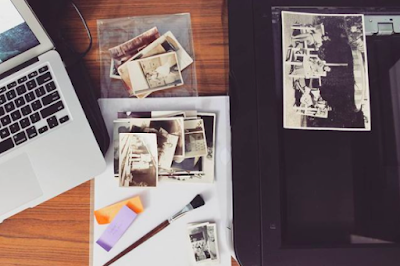Lately, I've been reflecting on the importance of writing down the stories of our family history as a part of ongoing research. I previously wrote a bit about the origins of my genealogy project and where I hope to go with it, and writing and sharing more was part of that. I've already compiled a 50+ page written account for my family members, but I hope to write in new and interesting ways.
Here's an excerpt from my article where I share some starting points to write about family history.
Writing and recording your family history is important to pass on stories to future generations. As a researcher, it helps you lay down everything you know, and then identify the gaps and further research questions or areas that you can focus on. If you've been researching your genealogy for a while, writing helps make sense of all the bits of information you've collected; if you haven't, it gives you somewhere to begin. And finally, writing your family history makes it easier to share what you've found with other members of your family.
Whether you've been researching your ancestors for a while or you're just getting started, here are some ideas to get the words flowing.
Brief biographies
An easy way to get started is by focusing on various members of your family and recording their stories chronologically. You can use information from records, oral history, letters, photographs and more to piece together a life story. I like to first create a sheet for each person which I call a "lifeline" – a timeline of events during their lifespan, including information about parents and siblings, profession, marriage etc., as well as wider contexts of the time that might have affected or intersected with their lives. You can get my Lifeline template here or create your own.
These templates are helpful to keep track of your research, ask questions and add further information as it becomes available. Once I've completed the details I have access to, I write them in a biographical form, adding more narrative and information from other sources, such as my great-grandparents' love for poetry and music that I came across through letters, photographs and oral history.
Oral (his)stories
We've all sat with our grandparents and heard their tales multiple times, but often, they're not easy to recount. Before I started my genealogical research a few years ago, I would note down or record (with permission) these stories so that I could get the details right, but I wasn't very organised about it.
I recently located some of these old notes and was astounded at how many little details I had forgotten that filled in the larger picture and added so much nuance. You may have the historical records of your great-grandmother's birth or marriage, but you'll only ever hear stories about her French convent education – where punishments meant being banished to the wine cellar – from people. Best write them down while they're fresh.
Read the full article here.

Comments
Post a Comment